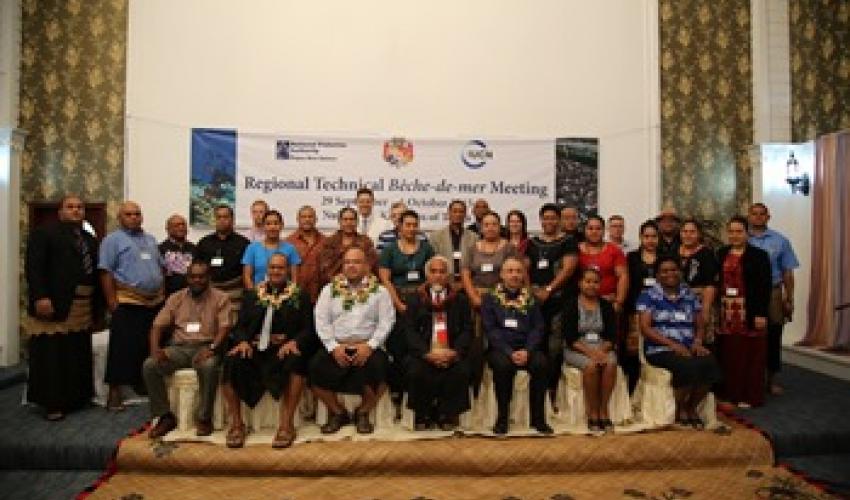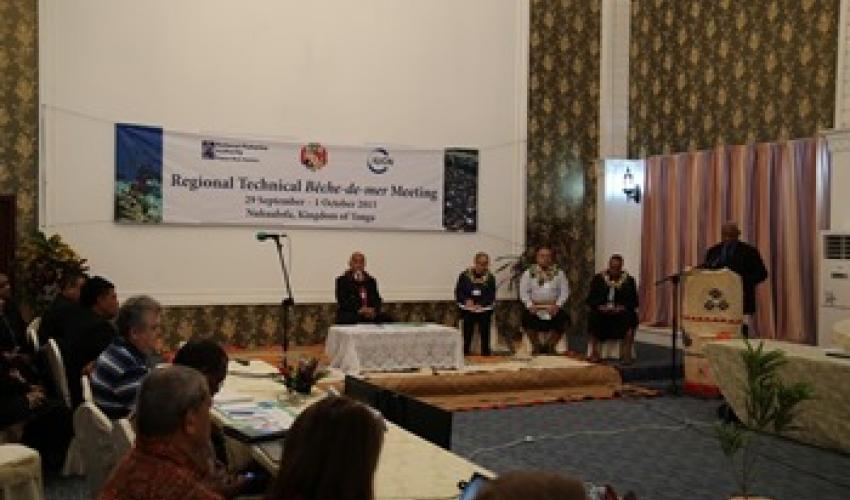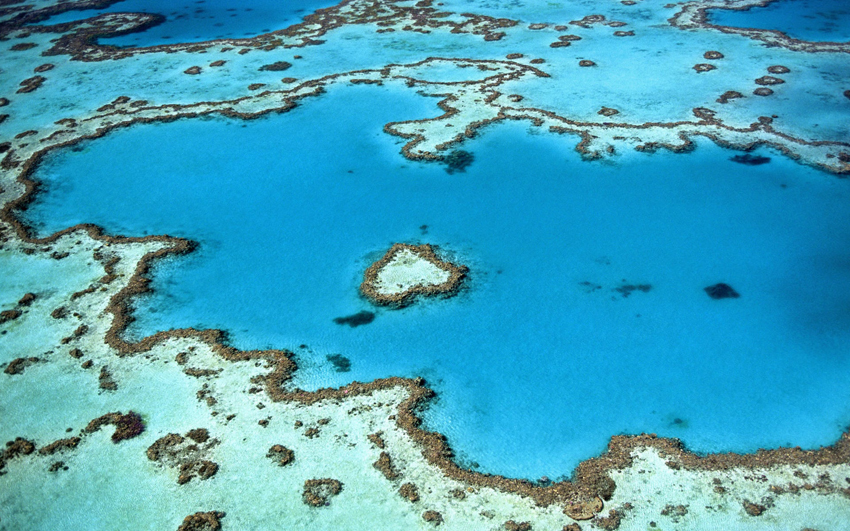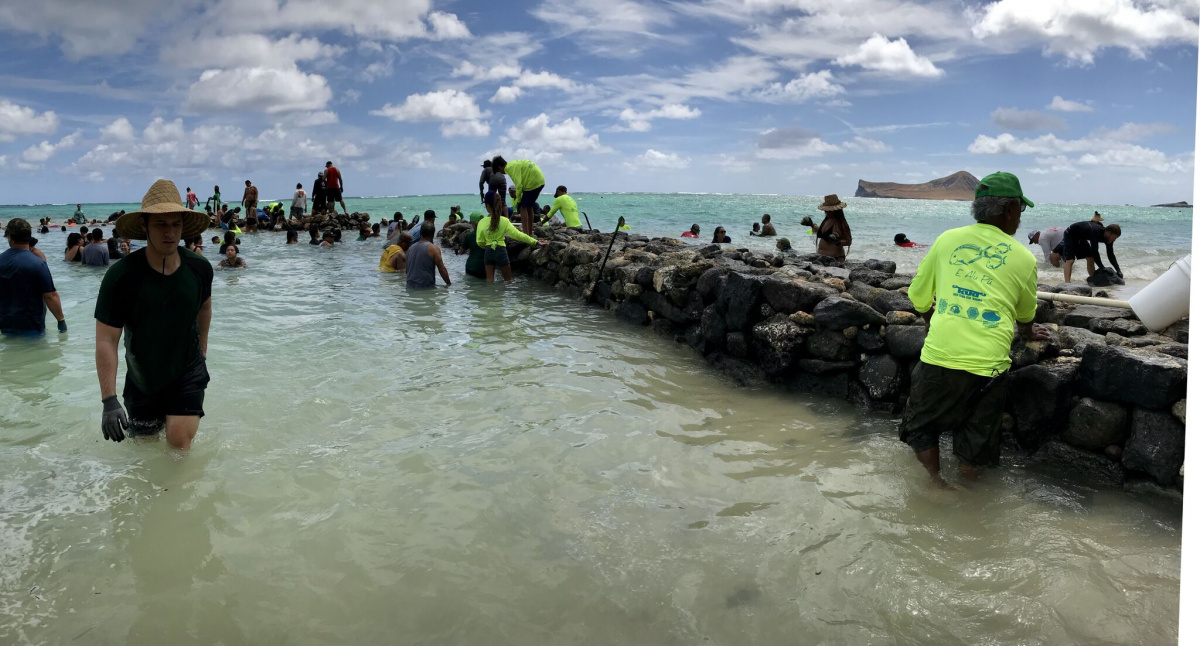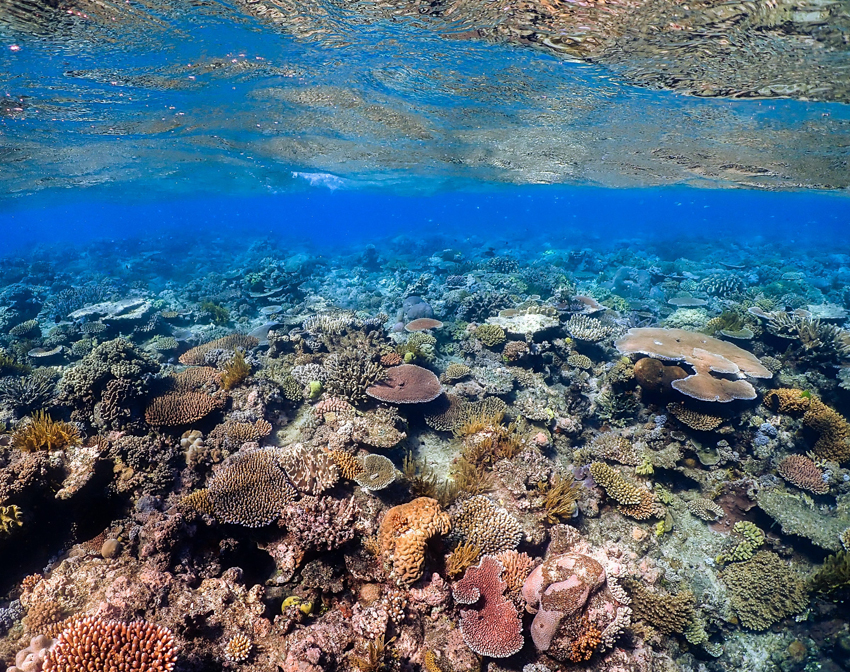Less planning, more action on – and regional approach to - Pacific Islands bêche-de-mer fisheries
The Government of the Kingdom of Tonga was honoured to host the inaugural Regional Technical bêche-de-mer (BdM) meeting in Nuku’alofa in October 2015. With the experiences and many challenges faced in sustainably managing the bêche-de-mer fishery in Tonga and the region as a whole, the Honourable Semisi Tauelangi Fakahau, Minister of Agriculture & Food, Forests and Fisheries expressed his concern at the real problems behind the failure to sustainably manage this fishery.
Speaking at the opening, Minister Semisi Fakahau strongly called for “brutally honest discussions about the hard but necessary solutions which we need to collectively identify and implement” and urged the participants to “be brave and open-minded in their search for these solutions.”
Throughout the Pacific, sea cucumbers, are the second most important harvest fishery in the Pacific Ocean, after tuna. They are often harvested by local communities, then dried and finally sold as bêche-de-mer to largely Asian markets for up to US$90 per kg, wet weight and up to US$840 dried. At its peak, it has brought US$24m worth of value to Pacific Islanders. It is an extremely important source of income in locations where there are a few sources of revenue.
Despite two decades of investment in education and awareness, development of guidelines on harvesting sizes, research into the ecology of these animals and their potential for aquaculture, stocks have continued to decline, with many locations suffering through ‘boom and bust’ cycles. With this lack of attention, and their biology and life history, the stock is very vulnerable to overfishing.
In his opening remark, Francis Chopin, Senior Fisheries and Aquaculture Officer at the FAO Sub-Regional Office of the Pacific in Samoa said that “despite potential solutions being known, the BdM resources of many countries continue to decline.”
In Tonga for example, the Minister stated that its bêche-de-mer resources are overfished and the stock is depleted through illegal fishing by using hookah and scuba equipment, fishing during the closed season and smuggling to overseas markets.
Three key aspects of the BdM fishery were addressed: conservation, industry development and collective action. Discussions examined the best practices for the management of sea cucumbers and what they may entail both within the countries and across the region. The meeting recognised that there is a genuine opportunity to increase the wealth derived from these resources and to overcome the boom and bust nature of the by value-adding to the product by high quality and more in-country processing of the sea cucumber.
This successful special meeting on bêche-de-mer resources was a follow through to the August 2014 “Call to Action” by Ministers and representatives of the seven countries in the region. There they reinforced that robust management measures and the establishment of a regional approach was needed to underpin the future management and sustainability of ‘bêche-de-mer fisheries – this meeting started to implement that call to action. .
While some governments are strong in regulating fisheries, others have historically had limited capacity to develop sustainable management. Pacific Island countries therefore, are at different points in developing and implementing management plans for their sea cucumbers.
Francis Chopin, Senior Fisheries and Aquaculture Officer, FAO Sub-Regional Office of the Pacific in Samoa stated that “sea cucumbers are an important component of the coastal ecosystems and their management should be part of a holistic national and regional strategy to avoid shifting effort and its negative consequences to other species and regions”
Participants promised immediate and decisive action in their countries and invited their neighbours to join them. There is regional support already for their efforts – there is alignment with key regional policies including the “New Song for coastal fisheries” and the regional Fisheries Roadmap.
These decisions reflect how very important Pacific Islanders consider their bêche-de-mer fishery and their commitment to effective national management strategies, regulatory frameworks, monitoring and enforcement. By stronger management, countries aim to sustain livelihoods and revenue earning opportunities for coastal communities from this fishery.
“The time of talk is over and we need to work hard in implementing these plans with the support of our partners …. the potential for our people is huge and we must explore these in a sustainable and responsible way," Mr. Vilimo Fakalolo, CEO of Fisheries, Ministry of Agriculture & Food, Forests and Fisheries of Tonga said.
For regional organisations, working together with member countries in the implementation process of national bêche-de-mer plans and strategies is necessary and important. Convening partnerships to assist countries in developing national standards and processes for developing local and national industry, working on ‘branding’ and marketing opportunities to maximize value in global BdM markets and most importantly working to improve and build necessary capacity are required if real progress is to be made to sustainable and profitable fisheries.
Taholo Kami, Regional Director of the International Union of Conservation of Nature, Oceania Regional Office said, “nothing has worked with management – let’s look at market based mechanisms that can be linked to strong community management and ownership and maximises benefits at national and local level.”
This meeting was hosted by the Government of the Kingdom of Tonga and supported by the International Union for Conservation of Nature (IUCN), Food and Agriculture Organization (FAO), WorldFish Centre, Secretariat of the Pacific Community (SPC) and IUCN member, the University of the South Pacific (USP). Participants numbered more than 50 and included Pacific Island Fisheries Ministers and public civil servants from Cook Islands, Fiji, Samoa, and IUCN member countries Solomon Islands and Tonga, as well as representatives from civil society, private sector, regional and non-government organisations.
For more information, contact Dr. Leanne Fernandes, Marine Coordinator, leanne.fernandes@iucn.org
